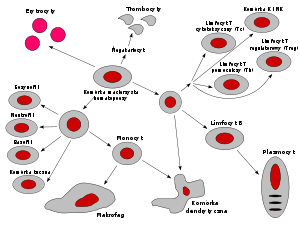Immune system can use melanoma’s own proteins to kill off cancer cells
Though a small group of proteins, the family called Ras controls a large number of cellular functions, including cell growth, differentiation, and survival. And because the protein has a hand in cellular division, mutated Ras, which can be detected in one-third of all tumors, contributes to many human cancers by allowing for the rapid growth of diseased cells.
Now Prof. Yoel Kloog of Tel Aviv University‘s Department of Neurobiology, along with Dr. Itamar Goldstein of TAU’sSackler Faculty of Medicine and the Sheba Medical Center and their students Helly Vernitsky and Dr. Oded Rechavi, has found that oncogenic Ras, which promotes cancer development, can also alert the immune system to the presence of cancer cells.
For the first time, the researchers have shown the transfer of oncogenic Ras in human cells from melanoma cells to T cells, which belong to a group of white blood cells that are part of the immune system. This transfer allows the immune cells to gather crucial intelligence on what they are fighting and develop the necessary cytokines, or signalling molecules, to kill the melanoma cells.
Prof. Kloog suggests that a drug that enhances the transfer of the oncogene from the tumor to the immune cells is a potential therapy to augment the anti-cancer immune response. This research has been published in the Journal of Immunology.
Finding the tipping point
Although they found that immune cells often exchange proteins among themselves, the discovery that melanoma cells transfer mutated Ras is an intriguing first. And it’s this initial transfer that begins what the researchers call a positive feedback loop.
In the lab, researchers incubated T-cells from patients with human melanoma cells that had originated from tumors to track the process of handing-off various proteins. They uncovered a circuit that runs between the cancer and immune cells. Once the melanoma cells pass oncogenic Ras to the T-cells, the T-cells are activated and begin to produce cytokines, which enhances their capacity to kill cancer cells.
As these melanoma cells pass along the mutated Ras, the immune cells become increasingly active. Eventually, enough oncogenic material is transferred across the immune cells’ threshold, causing the T-cells to act on the melanoma cells from which the oncogenic Ras was derived. Ultimately, this transfer tips the scales in favor of the immune cells, the researchers say.
via American Friends of Tel Aviv University
The Latest Streaming News: Can Cancer Be Turned Against Itself updated minute-by-minute
Bookmark this page and come back often
Latest NEWS
Latest VIDEO








